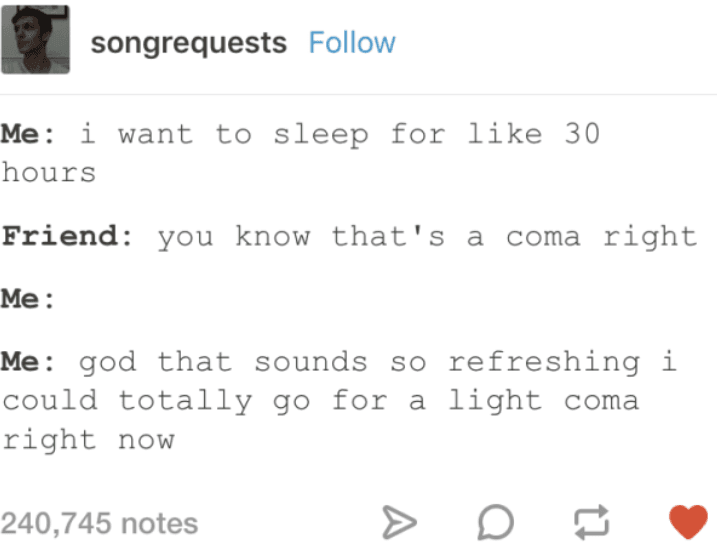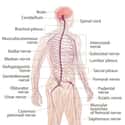-
(#9) Vitamin Levels In The Body Can Contribute To Paresthesia
B vitamins, particularly B6 and B12, and vitamin E are considered essential to your nervous system. According to the National Institutes of Health, a deficiency in B12 can cause numbness and tingling in hands and feet, but in extreme cases, can also lead to peripheral neuropathy.
It's all about balance, however. If you have too much B6, the same can happen. A B12 deficiency is more common for older adults since their bodies have a harder time absorbing vitamins from foods. This makes it more likely that they will experience a form of peripheral neuropathy.
-
(#3) You Might Be Genetically Prone To Higher Occurrences Of Paresthesia
People who have hereditary neuropathy with liability to pressure palsies, or HNPP, are more prone to feeling numbness and tingling and more likely to experience long-term consequences from nerve compression, according to Vox. HNPP is genetically passed down, and for those who have it, nerves don't respond to pressure normally; instead, they are overly sensitive.
The US National Library of Medicine says that those with HNPP don't typically endure permanent damage, though they can experience tingling and numbness for months.
-
(#5) Paresthesia Can Occur More Frequently During Pregnancy
Paresthesia is a common symptom of pregnancy, and there are a couple of reasons why pregnancy causes numbness and tingling in a person’s extremities. The hormonal change in a pregnant person's body is the main culprit. When pregnant, the body produces relaxin, a hormone that loosens ligaments for pelvic expansion to occur. In can have adverse side effects, though; when too much relaxin is produced, other joints in the body also become more flexible and collapse at points where stress can be placed on peripheral nerves.
Pregnancy can also cause paresthesia solely in the lower body, according to Dartmouth Medical School. Similar to when a person gains weight or wears a tight belt, there is a chance that a nerve which runs from the brain down into the legs - the lateral femoral cutaneous nerve - can get caught under a ligament in the pelvis.
-
(#6) Menopause Can Worsen Cases Of Paresthesia
As if hot flashes weren't enough, menopause can also cause paresthesia and peripheral neuropathy, according to 34 Menopause Symptoms. Menopausal women may have enlarged blood vessels that could press onto nerves and cut off circulation.
Postmenopausal women are particularly at risk for carpal tunnel, a form of peripheral neuropathy localized in a person's hands because their wrist structure becomes enlarged and places undue stress on the nerves.
-
(#2) The 'Pins And Needles' Feeling Is Caused By A Sudden Transmission Of Conflicting Electrical Signals
Nerves talk to the brain; they send sensory information from the body’s extremities to a central location in the organ, but different nerves have specific jobs. Numbness caused by prolonged pressure messes up which nerves are doing what, so the sensations and signals aren’t transmitted through the body correctly, according to Mental Floss.
The brain doesn't know how to process all of these conflicting signals, so it generates the sensations associated with “pins and needles."
-
(#1) Your Nervous System Has Stopped Transmitting Signals To Your Brain
Though you may think you've somehow cut off circulation when your leg has fallen asleep, the numbness you're experiencing has to do with your nervous system rather than your circulatory system. According to IFL Science, when your body is contorted into a strange position, it's common for sensory nerves to get compressed. After some time, the brain will stop receiving signals from that limb.
When the brain doesn't receive any signals from a certain area, the area will feel numb. The tingling or “pins and needles” sensation occurs when the sensory nerves are no longer compressed, and your brain receives a rush of information.
That, however, does not mean the circulatory system cannot affect your nervous system. If a blood vessel becomes restricted, nerves may not receive the needed oxygen. In such a case, the nerves in the area will stop sending signals to the brain.
New Random Displays Display All By Ranking
About This Tool
When a person sleeps, his body also enters a state of rest, and there will be no abnormalities under normal circumstances. However, many people shared that they always feel numbness or pain in their limbs when they are sleeping. Sometimes the discomfort can be quickly relieved by moving after wake up, but sometimes the symptoms can't be improved for a long time. What is going wrong?
In fact, there are many reasons for this symptom, such as prolonged sitting or improper sleeping posture that affects normal blood circulation. The random tool lists 9 reasons why our limbs painful during sleeping, we recommend that you'd better go to the hospital for a physical examination if you have persistent discomfort.
Our data comes from Ranker, If you want to participate in the ranking of items displayed on this page, please click here.
















